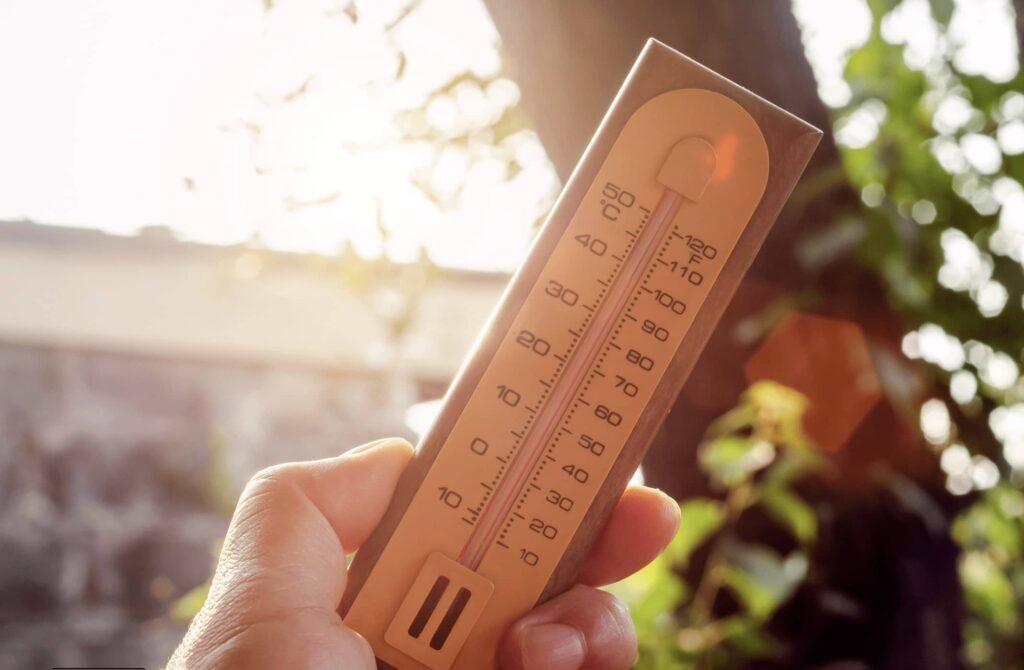Current Scenario of Heatwave in India
India is in the throes of an unusually long series of heatwaves. While the heatwaves most commonly occur in the months of May and June, its wrath began early this year. March, which is supposed to be a pleasant month, was recorded to be the hottest ever in 122 years. In addition to this, many states of India also experienced their hottest April, crossing 40°C in some areas.
In most of the states, the maximum temperature continued to be above 42°C, which is 5 to 6 degrees above the normal temperature. The Indian Meteorological Department (IMD) says that the heatwaves might get worse across the country if the Southwest monsoon fails to arrive on time. In the Indian subcontinent, the period from June to September is referred to as the ‘Southwest monsoon’ season.
Several researches have pointed out that the number of heatwave days in India are increasing every decade, from 413 heatwave days in 1981-1990 to 600 heatwave days in 2011-2020. Even though heatwaves are a common occurrence and a part of the summer season, the intensity and duration of heatwaves are increasing and climate change is to be blamed for it (and for the climate change – Us, humans). Thus, this extreme change in climate is making India’s brutal heatwaves worse each year. According to research by the Indian Meteorological Department’s scientists, the heatwaves are responsible for the death of over 17,000 people in the last 50 years in India.
What is a Heatwave?
According to Indian Meteorological Department, heatwave is an extreme hot weather event where the temperature surpasses the normal maximum temperature of a region or an area. It is considered to be a heatwave when the Plains experience a temperature rise of 40°C or more and at least 30°C or more is experienced in the hilly region. Heatwaves are usually experienced in the months of May and June, and in rare cases it may extend till the month of July.
For the past few decades, heatwaves have become a frequently occurring phenomenon across the world and now we know the reason i.e. change in climatic conditions. In a report published by the U.K. government’s Meteorological Office, it was stated that the frequency of heatwaves has gone from once every 312 years to once every 3.1 years.
Since heatwaves are only getting worse with each passing year and may have the possibility of becoming the new normal every summers, there are certain things that one should know by heart to prevent oneself from falling prey to the scorching, life-threatening heat. This article will explore the health impacts of a heatwave on humans and the several ways to keep oneself and the loved ones safe and healthy, every summer.
The Health Impacts of a Heatwave
It has been observed that exposure to excessive heat can cause a wide range of physiological impacts and it often amplifies existing health conditions. It may also result in premature death and disability. The most common heat-related illnesses are:
- Heat Cramps: They are painful, involuntary spasms or cramps in the muscles which generally occur during a heavy workout or strenuous activity in extremely hot environments. These spasms are usually more intense and last for a long period.
- Heat Stroke: It is the most serious illness which is caused due to the heat. When a person gets a heat stroke, their body temperature rapidly increases because of which their sweating mechanism fails and the body is unable to cool itself. Heat strokes are capable of causing permanent disability or in some cases death if immediate medical assistance is not provided.
- Heat Exhaustion: It is a response of the body to excessive loss of water and salt, and is usually through extreme sweating.
- Heat Syncope: It is a fainting episode or light-headedness that is experienced in extreme temperatures due to low blood pressure.
- Heat Rash: It is a skin irritation which is triggered by excessive sweating during extremely hot and humid weather.
(Source: The National Institute for Occupational Safety and Health, Read the whole piece here)

Other than these physiological health impacts, researches have shown that exposure to extreme heat can affect people’s mood and mental health. The hot weather has the tendency to heighten post-traumatic stress disorder, anxiety and depression, and it can also make a person irritable and short-tempered.
Symptoms of Heat Sickness According to WHO
The World Health Organization has pointed out a number of symptoms a person experiences while suffering from a heat-related illness. The symptoms include:
- Fainting and Light-headedness
- Hot, red and dry skin or skin rash
- Muscle weakness or cramps
- Seizures
- Irritability
- Throbbing headache
- Increased and uncontrollable sweating
- Rapid breathing and increased heartbeat
- Nausea and vomiting
- Increased body temperature – 105°F (40.5°C) or higher
Who is More Vulnerable to Heatwave?
Extreme hot weather conditions affect everyone however, some people are more vulnerable to illness and an increased risk of death due to prolonged exposure to excessive heat. The most vulnerable people are:
- The elderly
- Infants and children
- Pregnant women
- Outdoor and manual workers
- Athletes
- The poor, displaced and homeless
(Source: World Health Organization (WHO))
Measures to be taken during a Heatwave
- Avoid going out during the day, especially between 12.00 pm to 3.00 pm.
- Hydrate yourself at regular intervals, even if not thirsty
- Opt for light-coloured, lightweight and breathable cotton clothes
- Do not participate in any exhausting activities outdoors during the day
- Avoid dehydrating drinks such as tea, coffee, alcohol, and aerated drinks
- Avoid heavy and high protein meals
- Avoid eating stale food at any cost
- Never leave children or pets in parked vehicles, even if you need to be gone for a few seconds.
- Consult a doctor immediately if you feel sick
- You can make homemade drinks like buttermilk, lassi, lemon water, fruit-infused water, etc. which help in rehydration.
- Provide plenty of drinking water to your pets
- When the outside temperature rises, keep your windows and doors closed, especially if your rooms face direct sunlight. Hanging curtains over them also helps in keeping the heat away.
- Take frequent cold showers or baths if necessary
However, sometimes there are situations one cannot avoid and have no other option but to head out in the scorching heat.
You may ask how can I save myself from falling prey to the heatwave? The answer is simple. Heatwave Emergency Kit. One should always carry their heatwave emergency kit while heading out in the sun.
The kit may include:
- An umbrella/ Head scarf/ Cap or a Hat
- Water bottle
- Hand towel
- Oral Rehydration/ Electrolyte/ Glucose
- Battery operated portable fan or a hand fan
- You can also add some sweet, healthy snacks (optional)
What to do if someone is suffering from the Heat?
Follow the measures listed below if you come across someone being affected by the heat:
- Make the person rest in a cool place under the shade
- If the person is conscious, give them water or any rehydration drink – ORS/ Electrolyte etc.
- Fan the person
- If the person is unconscious or the symptoms are long-lasting or get worse, rush them to the nearby medical facility.
- Do not offer them any drink that contains caffeine, alcohol or is aerated
- Putting a cool wet cloth on the person’s face or body can help them in cooling down their body temperature
- Their clothes can be loosened (while maintaining their dignity) for better ventilation
- Most importantly, avoid giving any medicines without consulting a doctor
(Source: National Disaster Management Authority)
How do you survive a Heatwave without Air Conditioning?
- Take cold showers or baths
- Close your curtains during the day
- Use ceiling fans and box fans for air circulation
- Use cool, wet towels on your head, wrists or shoulders
- If you have a basement, stay downstairs during day
- Switch off unnecessary heat-generating appliances
- Sleep in breathable clothes
The heatwaves are capable of weakening the body’s immune system. When an individual is exposed to extreme heat, they can experience severe heat stress which negatively affects the ability of the body’s immune system to fight off infections. Thus, it is essential for one’s health to take care of their immune system.

If your immune system is weak, you may experience the following signs:
- You are always stressed out
- You constantly catch colds
- You experience a lot of stomach-related issues
- Your wounds heal at a slower rate than usual
- You suffer from frequent infections
- You feel tired all the time, even without doing anything
If your body is experiencing the above-mentioned signs, then you know it’s time for you to boost and improve your immunity. For a good immune system, it is advised that you keep yourself hydrated, get enough sleep each night, eat a healthy and balanced diet, indulge in regular exercise and maintain a healthy weight. In addition to this, did you know there are certain foods that boost and improve your immunity system? Improving your immunity will definitely help you in fighting all heat-related illnesses.
Hope you stay indoors and save yourself from the wrath of these brutal heatwaves!



